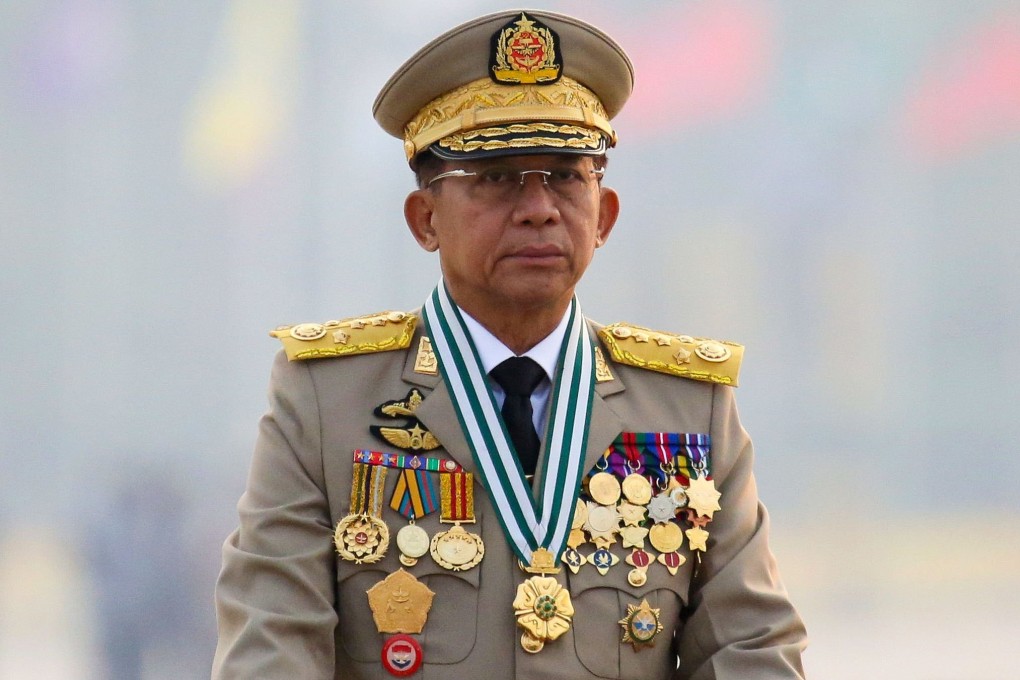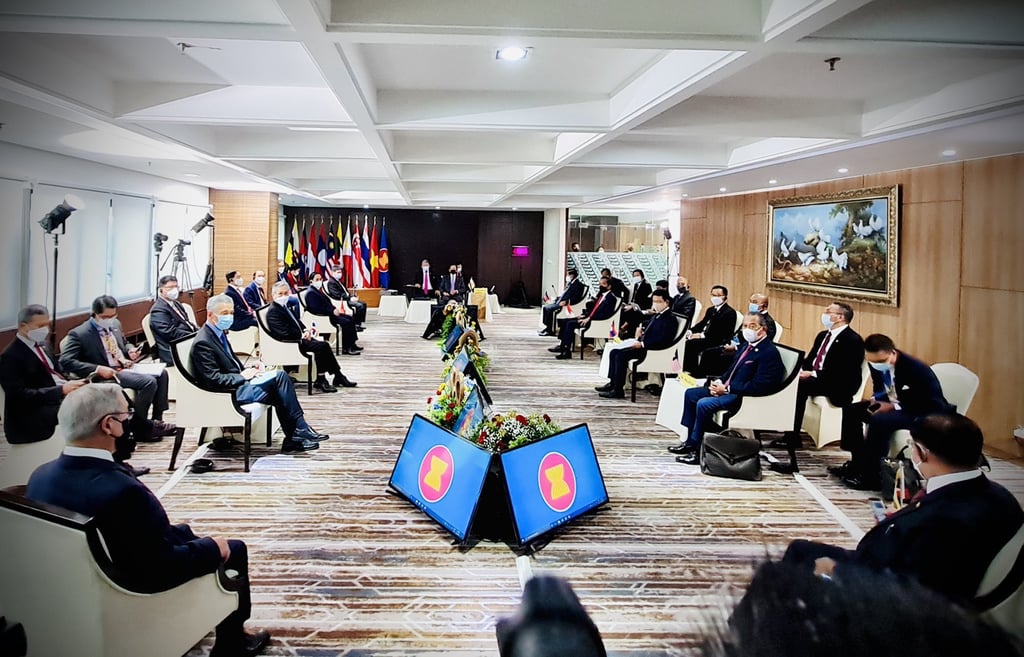Myanmar’s junta to consider Asean’s five-point consensus after ‘stabilising’ the country
- The junta said in a statement that ‘constructive suggestions’ had come from Saturday’s talks, but the priority at the moment was to ‘maintain law and order’ and ‘restore community peace and tranquillity’
- Its response signals that junta chief Min Aung Hlaing is not emphatically behind the Association of Southeast Asian Nations’ five-point consensus aimed at de-escalating Myanmar’s post-coup crisis

In a statement published on the website of Myanmar’s information ministry, the junta said it had conveyed to Asean that it would “give careful consideration to constructive suggestions” made by regional leaders during Saturday’s talks. But it said the priority at the moment was to “maintain law and order” and “restore community peace and tranquillity”.

During the meeting, Asean leaders – the heads of government of Singapore, Malaysia and Indonesia, in particular – were forthright in their condemnation of the Myanmar military’s use of violence against unarmed civilians and called for the immediate release of detained civilian leaders.
The junta’s statement implied that Min Aung Hlaing distributed a dossier outlining the military’s point of view during the meeting. “Myanmar also stated that Asean leaders thoroughly review the information booklet circulated at the meeting before comments are made relating to the current political situation in Myanmar,” it said.